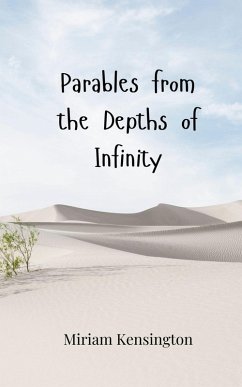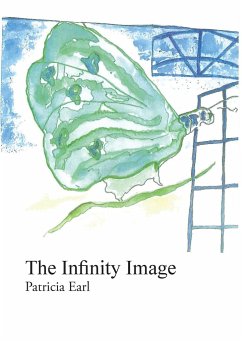
Asymptotes at the Infinity of Passion
The Untouchable Quest of Poetry
Versandkostenfrei!
Versandfertig in 1-2 Wochen
26,99 €
inkl. MwSt.

PAYBACK Punkte
13 °P sammeln!
In this book, "Asymptotes at the Infinity of Passion," the eighth book of poetry, in as many years, Jean-Yves returns to grapple with his and Camus' definition of the core responsibility of the artist-poet in Jean-Yves' case-which is to distill ineffability and offer it in as aesthetic form as possible, so that we may access a fresh, revitalized vision of humanity and the world in which we all exist: From the small, intimate and personal private moments, to the big, public, international events that change the course of history. Essentially there is no subject matter that is too small or insig...
In this book, "Asymptotes at the Infinity of Passion," the eighth book of poetry, in as many years, Jean-Yves returns to grapple with his and Camus' definition of the core responsibility of the artist-poet in Jean-Yves' case-which is to distill ineffability and offer it in as aesthetic form as possible, so that we may access a fresh, revitalized vision of humanity and the world in which we all exist: From the small, intimate and personal private moments, to the big, public, international events that change the course of history. Essentially there is no subject matter that is too small or insignificant that can evade the attention of Jean-Yves. Unfamiliar, as I and no doubt many of you are, with the word asymptote, I was pleasantly surprised to learn that I had been living with it most of my life. In fact, as a former professional furniture/interior designer and teacher of design, I have spent a life time working with the graphical implications and aesthetic qualities of the "dynamic curve" ...or in other words asymptotic constructions, with its asymmetry and geometric certainty of incompletion. It is the prefect analogy/metaphor to explain the process by which artists, since the dawn of existence, have sought to understand and explain the human condition: In other words, whilst accepting the infinite certainty of separation from absolute comprehension and description, a true artist relentlessly pursues understanding through their art form. In this book Jean-Yves endlessly explores humanity's perception of reality within an existentialist view of the absurdity of breathtaking beauty and unspeakable horror as they inhabit the same space and time. In his inimitable style of multilayered, multifaceted images his poems bring us both nearer to uncomfortable truths in which most would not willingly venture, or to a point of passion or beauty we could not have previously envisioned. In previous books, Jean-Yves has taken the time to describe over 30 pages or more of situations and scenarios that motivate or direct his muse. Suffice to say there appears no sign of these having been sated or become redundant in any way. In fact I believe that he expands and adds to them almost everyday. While most writers wait for the muse to appear or reveal itself to them, to Jean-Yves every memory, event or visual stimulation has significance and potential, requiring an immediate response. Nothing in his conscious or, in fact, unconscious mind has irrelevance in the process of creating his poetry. Therefore, he writes constantly because for him, there is so much to write about. The human experience is indeed manifestly rich with endless possibilities. I take just one example to illustrate my point. A teary smile of a grandmother, who sees resemblances of her son walk past her on the street might be an unimportant detail on its own or somewhat overly sentimental but Jean-Yves sets it against the giggles of teenage girls at his appearance, rendering both distinct yet immutable bound together. This juxtaposition of human responses and interactions is in the end what matters. I encourage all those who are interested in poetry, that reaches out to explain the human experience at its extremes, to read this collection, it will enrich your soul as it did mine.












